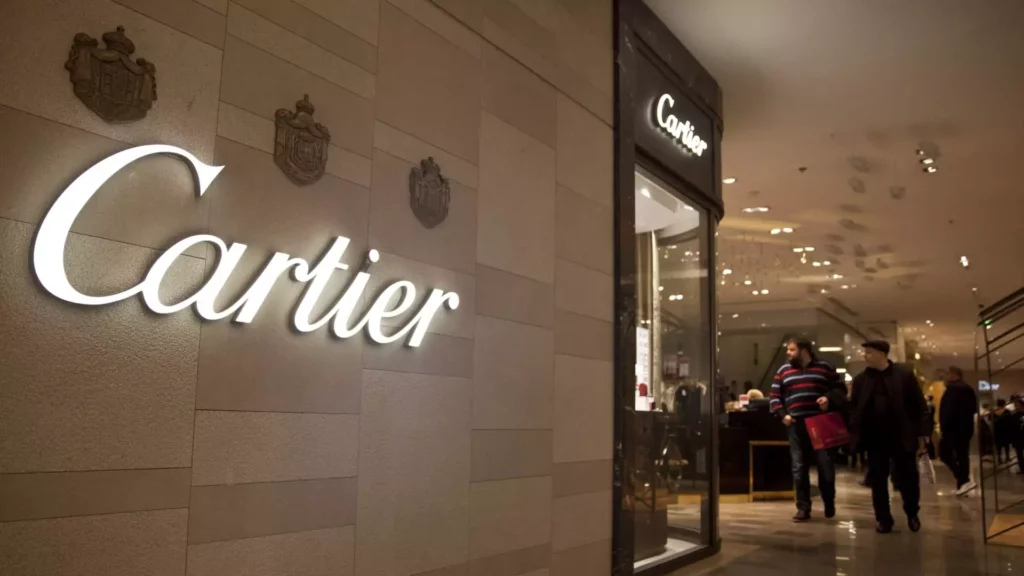In a significant development for the luxury sector, shares of Richemont, the parent company of renowned brands such as Cartier, saw a notable increase on Thursday. This surge followed the luxury group’s announcement of a 10% rise in sales for the fiscal third quarter, despite fluctuations in demand from crucial markets like China. The company’s revenue reached a record 6.2 billion euros ($6.38 billion) during the last quarter of 2023. This remarkable figure was achieved at constant exchange rates, marking it as Richemont’s “highest ever” quarterly sales. Analysts had anticipated only a modest increase of 1% in sales, making this performance even more impressive.
The skyrocketing of Richemont’s shares, climbing 17.15% shortly after the announcement, indicates positive investor sentiment. Notably, other luxury brands such as Christian Dior, LVMH, and Hermes also experienced a rise in their stock prices, reflecting a collective optimistic outlook for the health of Europe’s luxury retail market, particularly during the critical holiday shopping season.
Richemont’s success was not without its challenges, particularly in the Asia-Pacific region, where sales encountered a 7% decline. The downturn in this area can primarily be attributed to an 18% drop in sales across mainland China, Hong Kong, and Macau. Following a pandemic-induced slump, China, once the beating heart of luxury demand, is grappling with a slow recovery. The consequence has been a heavier reliance on other regions to sustain sales growth. The ongoing struggles of the Asian market serve as a poignant reminder of the vulnerabilities that even the most powerful luxury brands face in a global economic climate that remains unpredictable.
While Richemont has generally outperformed many of its competitors amid a downturn in luxury sales, the company’s stock performance has been erratic over the past year, reflecting broader trends in the luxury market. Nevertheless, the recent appointment of Nicolas Bos as the new CEO has injected a fresh perspective into the company’s leadership, following a period of instability in management.
The latest sales figures from Richemont suggest a powerful turnaround and a potential revival for the company, especially considering the 1% decline in sales reported during the first half of the fiscal year ending in September. That period was marred by challenging economic conditions, especially related to the ongoing effects of the pandemic and its aftermath in China. With sales for that six-month period reported to be around 10.1 billion euros, the contrast with the recent quarterly performance highlights a strong rebound.
Luca Solca, a senior analyst at Bernstein covering global luxury goods, commented that these results indicate a positive outlook for the luxury sector. He pointed out the notable improvements in Europe and the Asia-Pacific regions—excluding greater China—driven by increased domestic demand and a resurgence in tourism. Solca emphasized that the Americas market continues to reap benefits from strong local preferences, adding to the encouraging narrative surrounding luxury goods.
Richemont’s recent results highlight a pivotal moment for the luxury market as a whole. With investors looking for signs of recovery, the company’s performance could signal that the luxury sector is coming to terms with and adapting to the post-pandemic landscape. The expectations surrounding the third quarter of 2024 suggest that it may have been a low point in performance, with the market now gearing up for a potential rebound.
This transformation is particularly crucial for luxury brands as they navigate the complex interplay of local and global demand fluctuations. As the luxury market evolves, brands must remain agile, innovating not just in product offerings but also in how they engage with their customer base. The success of Richemont in maintaining robust sales amidst adversity may set new standards for resilience within the luxury goods industry.

